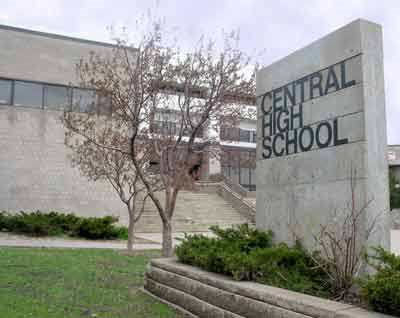A new contract was approved by the St. Paul School Board last week, which more clearly defines the roles of the police officers who are assigned to high schools in the district. Most importantly, the district has promised to stop calling the police to assist with disciplinary matters at the schools.
Students and parents who had issues with the way school resource officers (SROs) have done their jobs in the past, led the charge in making considerable changes to the contract.
“Because of that feedback, we have a better product,” chief engagement officer Jackie Turner told the St. Paul Pioneer Press.
With the new contract, there will be significant changes made with regard to SROs in St. Paul Schools. The police agreed to go through additional training, be more detailed on collecting data on use of force, will meet monthly with student advisory teams at each school, and wear a different style of uniform that will distinguish police officers from contract security staff.
“They are not there to be the disciplinarian for the school. That’s the administrator’s job and administrators need to own that. We shouldn’t call on the SRO to do our job,” Turner told the Pioneer Press.
In a July 26th Pioneer Press story, The Pan-African Student Union at Central High School stated that it wanted police to stop arresting students for crimes such as drug possession, fighting and theft. They claim that unnecessarily arresting teens is counterproductive and pushes students out of schools and into the criminal justice system.
Central High School Senior Saffiyah Alaziz said at a July school board meeting, “Do we want to contribute to the school-to-prison pipeline, or are we really trying to protect students?”
In May 2016, a Central High School resource officer was criticized for aggressively arresting a former student who was suspected of trespassing on high school property during the school day. The teen’s arrest was videotaped on a cellphone and posted to Facebook. School officials, according to the district’s handbook, are not to involve the police for a minor crime like trespassing.
The new contract includes seven police officers and two additional “roving” officers who will be stationed at the high schools. There are 7 public high schools in St. Paul. The school district will pay $884,500 a year for the use of the police officers, while the police department will pay $100,000 plus the cost of a supervising sergeant, squad cars and other equipment.
The city covered a much larger share of the costs over a decade ago, with one school board member telling the Pioneer Press that it was “a pretty good contract, except for the money part.”
Another board member told the Pioneer Press that he likes the changes to the contract, but he’s still unsure whether a constant police presence is a good thing for St. Paul’s schools. “This is a very expensive contract for the district,” he said. “We really need to think about how it is accomplishing the district’s goals.”
The board voted 5-0 to approve the contract, with one member abstaining.











